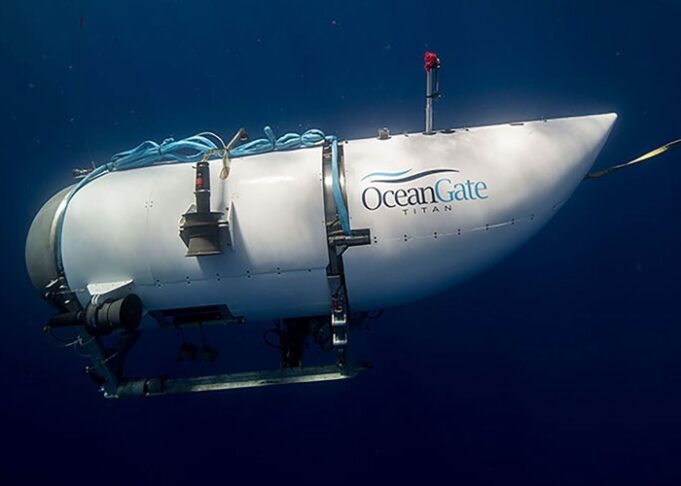U.S. Coast Guard, on Thursday, June 22, declared that the submersible which went missing during a tourist expedition to the Titanic imploded near the wreckage, killing all five people on board.
“These men were true explorers who shared a distinct spirit of adventure, and a deep passion for exploring and protecting the world’s oceans,” OceanGate Expeditions, the U.S.-based company that operated the Titan submersible, said in a statement.
“Our hearts are with these five souls and every member of their families during this tragic time.”
An unmanned deep-sea robot deployed from a Canadian ship discovered the wreckage of the Titan on Thursday morning about 1,600 feet (488 meters) from the bow of the century-old wreck, 2-1/2 miles (4 km) below the surface, U.S. Coast Guard Rear Admiral John Mauger said at a press conference.
“The debris field here is consistent with a catastrophic implosion of the vehicle,” Mauger said.
The five people aboard included the British billionaire and explorer Hamish Harding, 58; Pakistani-born business magnate Shahzada Dawood, 48, and his 19-year-old son, Suleman, both British citizens; French oceanographer and Titanic expert Paul-Henri Nargeolet, 77, who had visited the wreck dozens of times; and Stockton Rush, the American founder and chief executive of OceanGate, who was piloting the submersible.
According to Reuters, rescue teams from several countries had spent days searching thousands of square miles of open seas with planes and ships for any sign of the 22-foot (6.7-meter) Titan.
The submersible lost contact on Sunday morning with its support ship about an hour and 45 minutes into what should have been a two-hour descent.
Mauger said it was too early to tell whether the vessel’s failure occurred then or at a later time.
The detection of undersea noises on Tuesday and Wednesday using sonar buoys dropped from Canadian aircraft had temporarily offered hope that the people on board the submersible were alive and trying to communicate by banging on the hull.
But officials had warned that analysis of the sound was inconclusive and that the noises might not have emanated from the Titan at all.
“There doesn’t appear to be any relation between the noises and the location of the debris field on the sea floor,” Mauger said on Thursday.
The search had grown increasingly desperate on Thursday when the estimated 96-hour air supply was expected to run out if the Titan were still intact.
The Titanic, which sank in 1912 on its maiden voyage after hitting an iceberg, killing more than 1,500 people, lies about 900 miles (1,450 km) east of Cape Cod, Massachusetts, and 400 miles (640 km) south of St. John’s, Newfoundland.
The expedition to the wreck, which OceanGate has been operating since 2021, cost $250,000 per person, according to OceanGate’s website.
Questions about Titan’s safety were raised in 2018 during a symposium of submersible industry experts and in a lawsuit by OceanGate’s former head of marine operations, which was settled later that year.
The sweeping search covered more than 10,000 square miles of ocean – about the size of the U.S. state of Massachusetts.
On Thursday, the deployment of two specialized deep-sea unmanned vehicles expanded the effort to the ocean’s depths, where immense pressure and pitch-black darkness had promised to complicate any rescue mission.
The missing submersible and subsequent hunt captured worldwide attention, in part due to the mythology surrounding the Titanic.
The “unsinkable” British passenger liner has inspired both nonfiction and fiction accounts for a century, including the James Cameron blockbuster 1998 movie, which rekindled popular interest in the story.

